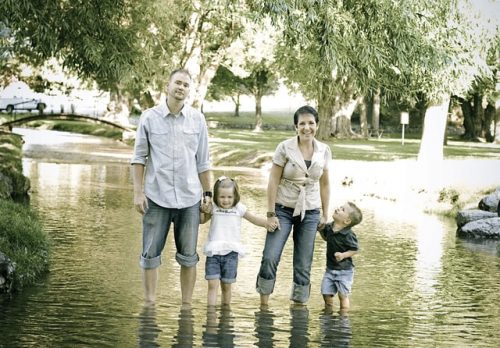
I have been a fan of Demi Lovato ever since her Camp Rock days. I used to think that she was telling the story of my life through some of her hit songs, such as Skyscraper, Warrior, and Give Your Heart A Break. Then, before singing Let It Go, she released the Gift Of A Friend, which was an OST for one of the Tinker Bell movies. Up to this day, whenever I needed music to pump my energy and wake me up, Demi’s songs would be blasting through my speakers, I would sing along at the top of my lungs. (Don’t judge me!)
The thing is, I am among those fans who continue to support someone’s music despite their questionable behavior. However, as the years passed, I could not help but notice that the pop star’s image started going dark. Everyone thought that it was an artistic move, but then Demi admitted to drinking and abusing substances, to the extent that she needed to sign up to a rehabilitation facility.
What’s triggering her to do all that despite the outpouring of love and support from her fans, you might ask? Well, it was evident in a couple of songs like Father and For The Love Of A Daughter from the Unbroken album that Demi had deep-seated resentment towards her father. Even though he already passed away, she could not get over the trauma that he caused to her as a kid.
Mental Health Reality Check
Many people could relate to Demi Lovato’s life story, considering many came from broken families. To say that they merely had Daddy issues was undermining the reality that a parent’s action could leave a lasting impression on a kid. It would have been cool if it made the latter wiser or want to have better relations, but that’s not the case. Such an experience often caused the kids to develop mental health problems that would require help from a mental health professional or our kid’s health care provider.

As a mother, it was challenging to imagine my kids mental health problems as my favorite pop star. Demi’s family must feel helpless when they learned about her struggles but could not do much to help her get over them. If I was in their position, I might have cried day and night and never left my kids out of my sight.
No Psychological Wellness Disorders
Nevertheless, since the kids were still too young, I tried to think of the things I could do to ensure that I won’t give them a mental health problem. I learned from health care professionals, read some resources on diagnostic and statistical manual of adolescent psychiatry as well as looked into family counseling.

Watch The Words In Front of Kids
Before having kids, I used to be more carefree with my word choices. It was effortless for my friends and me to hurl the F word to each other whenever we met as if it was the most normal thing to do. We also made insensitive comments about various people or things that I admittedly did not think about before.
But when I gave birth to a smart little girl who went through a lengthy phase of copying everything she heard, my husband and I became more mindful of our words. We wanted to shield her from F-bombs as much as we could and preserve her innocence. After all, the worst-case scenario was that our kid would end up a racist or depressive person.

Avoid Fighting In Front Of The Kids
No one—not even me—could have a perfect marriage. Although our fights happened every four months or so, my husband and I made a pact that we would only argue away from the kid’s eyes. Whenever we’re in front of them, we always tried to be peaceful and loving so that that’s what our kids would learn to be while growing up.
Sometimes, it was difficult to hide my annoyance or frustration because guys tend to do silly things that they didn’t know were silly. For instance, my husband mixed the whites with colored clothes when I asked him to do the laundry one time. No matter how I wanted to yell at him, I practically smiled through all of my kid’s daily life. The only consolation was that our kids would not have traumatic memories of us fighting in front of them as family members.

Stay Away From Vices For The Kids
Before having kids, I smoked and enjoyed happy hour at bars every week. I always knew my limits, but it felt as if I could not live without cigarettes and alcohol. The same goes for my husband. Those are our coping skills.
When the kids came, we stopped using both substances at once because they were probably risk factors and causes of congenital disabilities, attention deficit hyperactivity disorder, autism spectrum disorder, possible childhood mental health problems and diseases. The sudden change was more challenging for my husband since he did not need to carry our babies full term. However, once he saw our angels, I did not have to ask him twice—he stayed away from vices immediately. Not even a sign of post traumatic stress disorder, anxiety disorders, mental health problems, other mood disorders and eating disorders are present after this.
Final Thoughts On Mental Health Problems
I could not tell if our combined efforts would be practical until our kids probably turn 18 years old. But as far as I could see, they were open to us about their issues so we can really watch out for warning signs in their mental health or if there is a possibility of developing a mental health problem. I guess that’s a promising start. I might need some help from mental health professionals in the future. But right now, I do not see any signs of childhood mental health problems.
Mental Health Problems FAQs
What are healthy coping strategies for mental health problems?
Healthy coping for mental health disorders involves seeking professional healthcare help, staying connected with a support system, practicing mindfulness, exercising, and maintaining a balanced diet. Adequate sleep, stress management, and positive self-talk are vital. Setting realistic goals, limiting substance use, and engaging in hobbies and creative activities contribute to well-being. Support groups, self-care, and managing screen time are also valuable. A personalized coping plan with a mental health professional is essential for effectively managing mental health disorders.
Why are coping strategies vital in mental health recovery?
How do you deal with a grown kid with mental health problems?
How can we promote more open conversations about mental health in our society?
How can we prevent mental health problems in kids?
Preventing mental health problems in children includes creating a supportive environment, fostering open communication, and promoting healthy lifestyles. These measures can help build resilience against issues like anxiety, depression, and attention deficit hyperactivity disorder ADHD. Early recognition of signs and access to support are crucial. Maintaining a loving and accepting home environment plays a significant role, and seeking professional help promptly if issues arise is essential.
What are the consequences of unhealthy coping strategies?
How to prevent the stigma of mental health problem in family and society?
How do you help a kid with a mental health breakdown?
How does mental health affect a kid’s behavior?
How does bad mental health affect kid development?
What causes mental health issues in kids?
What is the most common mental health problem in kids?
